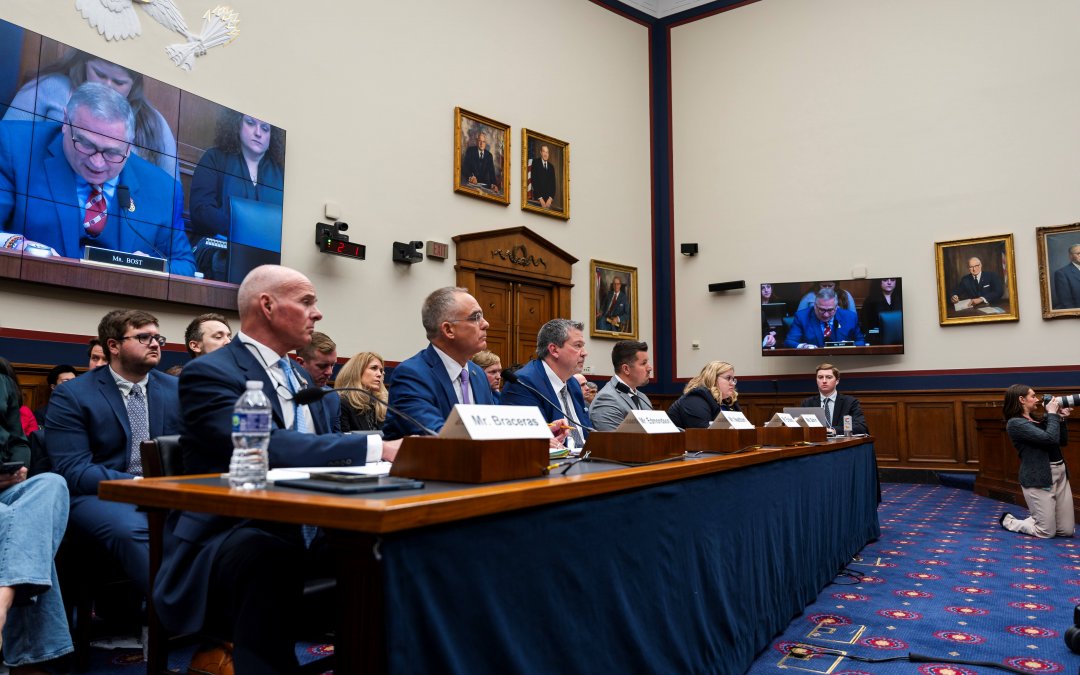WASHINGTON – Officials from the construction, manufacturing and transportation industries outlined to lawmakers the challenges they are facing in implementing President Biden’s Build America, Buy America provisions enacted as part of the Infrastructure Investment and Jobs Act, during a subcommittee hearing on Thursday.
The provision, passed as part of the 2021 law, requires that United States workers and companies make and produce the iron, steel, manufactured products and construction materials used in domestic infrastructure projects.
Among the biggest hurdles has been that American companies and suppliers often can’t source these materials quickly enough to complete emergency repairs.
The provision permits federal agencies to ask for exemptions through a waiver process so they can outsource materials from foreign trade partners. However, agencies must first post the proposed waiver online for 15 days for public comment.
“When we’re having a conversation with the different federal agencies, there’s a recognition of what the end goal is: we’re trying to save lives and make lives better,” said Carlos Braceras, the executive director of the Utah Department of Transportation. “We can do that while still meeting the provisions of Build America, Buy America if we all work together toward our common goals.”
The waiver exemptions are few and far between, according to Dan Needham, an executive vice president at Nucor Corporation, the largest steel producer in the United States. He said most exemptions granted to federal agencies happen because of time constraints, not access constraints, and that America can produce almost all materials it imports domestically.
The United States is among the top five crude steel-producing countries, making 94.7 million net tons in 2022. The nation reported a 2% decrease in total steel imports in the same year, according to an annual report from the American Iron and Steel Institute, in part demonstrating the provision is working.
Several witnesses agreed they would like to see the waiver process and foreign outsourcing become unnecessary because American companies would produce their iron, steel, manufactured products and construction materials.
“China’s steel companies do not adhere to U.S. regulations,” said Rep. Lori Chavez-DeRemer (R-Ore.). “So when Department of Transportation policies allow the purchase of foreign steel, we undermine these very regulations and subject our companies and workers to an unfair playing field at the taxpayers’ expense.”
Delegate Eleanor Holmes Norton (D-D.C.) pointed out that U.S. environmental laws strictly regulate carbon emissions in manufacturing production, an advantage she said the nation had over other developed countries.
“Strong Buy America policies act to prevent shifts in production possibilities to countries that have lower environmental standards and more pollution than us,” said Megan Salrin, a legislative representative for United Steelworkers. “We’re just exporting our pollution at that point.”
However, the United States relies on foreign trade partners for materials like geotextiles, signal cabinets, generators, ultraviolet disinfection equipment and geotextiles.
Ty Edmondson, the CEO of T.A. Loving Company, a commercial construction contractor, said he now asks suppliers for a Buy America Certificate, guaranteeing the contractor that the materials are compliant. The responses Edmondson is receiving from suppliers are concerning, he said.
“We ask suppliers for compliance and receive asterisks on their quotes saying they cannot certify compliance,” Edmondson said. “Put simply, there is uncertainty, and in construction, that means increased costs because contractors must account for that in their bids to mitigate risk.”
Still, both sides of the aisle praised the goal of having more products come from U.S. operations.
Chavez-DeRemer echoed a Morning Consult survey showing that 83% of Republican, Democrat and Independent voters agree that taxpayer dollars should go toward infrastructure projects that use American-made materials.
“I think we can all benefit if we get Buy America right,” she said.


